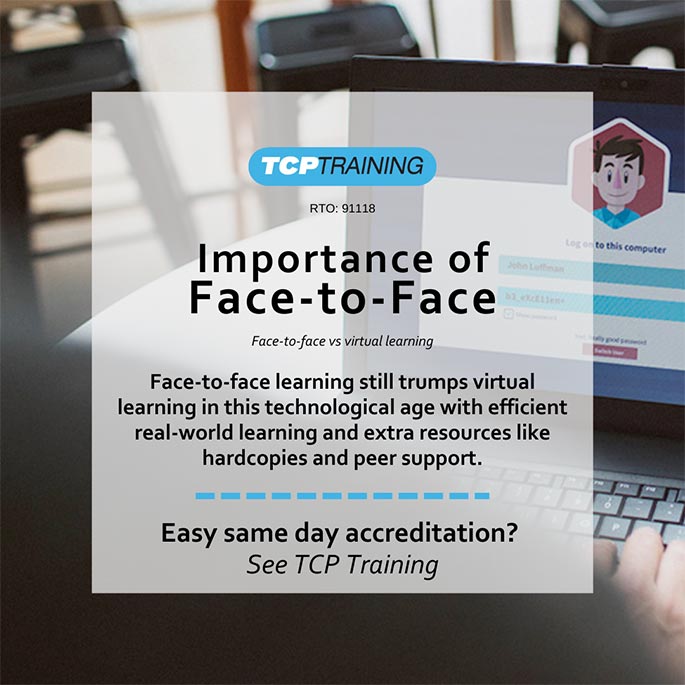Face-to-Face vs Online Learning
Monday, August 12, 2024
Monday, August 12, 2024

In recent times, it would feel as though the face-to-face and virtual learning battle has been settled. However, you would be surprised to learn that it has not. With the increase in virtual classrooms, it seems as though the concept of an in-person classroom has gone astray.
Face-to-Face Learning has many benefits including:
Vocational Training: A Case for Face-to-Face Learning
Courses like First Aid training, White Card, Responsible Service of Alcohol (RSA), and Responsible Conduct of Gambling (RCG) require hands-on practice and immediate instructor feedback. These courses often involve practical exercises that are crucial for gaining the necessary skills and competencies.
For example, in First Aid training, students need to practice CPR, bandaging, and other emergency response techniques. These skills cannot be effectively learned through a computer screen. The physical presence of an instructor to guide, correct, and provide feedback is vital in the learning outcomes of the course.
Similarly, for White Card training, which involves understanding safety protocols on construction sites, practical demonstrations and real-time practice are essential. Virtual learning cannot replicate the real-world scenarios and hands-on experience required for such training programs.
Book your Accredited short course today with TCP and experience the benefits of a face-to-face classroom!